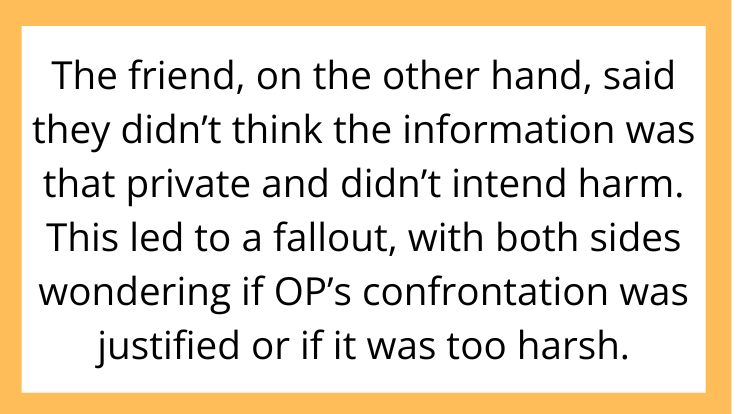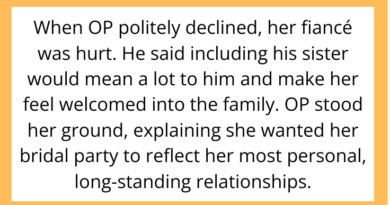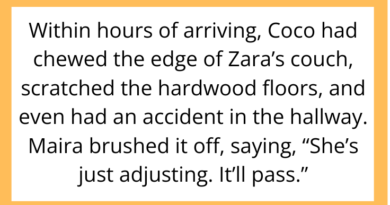AITAH for Confronting My Friend After They Spread a Private Secret?
Trust is the foundation of any close friendship, but what happens when that trust is broken? A recent post on r/AITAH caught my attention where the original poster (OP) asked if they were the bad person for confronting their friend after the friend shared a private secret with others without permission.
This situation is more common than you’d think and raises important questions about loyalty, boundaries, and how to handle betrayal in friendships. In this blog post, we’ll explore the scenario, analyze both sides, and offer insight into navigating trust issues while maintaining relationships.
The Situation: When Privacy Is Violated

OP shared that they confided in their best friend about a sensitive personal matter, trusting that it would remain confidential. To OP’s shock, this secret was soon common knowledge among mutual acquaintances. Feeling hurt and betrayed, OP confronted their friend directly, demanding an explanation and an apology.
The friend, on the other hand, said they didn’t think the information was that private and didn’t intend harm. This led to a fallout, with both sides wondering if OP’s confrontation was justified or if it was too harsh.
Is It Wrong to Confront a Friend Over Broken Trust?

Many readers sided with OP, agreeing that protecting personal boundaries and calling out breaches of trust is essential. Without accountability, toxic patterns can develop that damage friendships long-term.
However, some argued that confrontation should be handled delicately, especially if the friend didn’t realize the impact of their actions. Others cautioned against making situations public or escalating conflict unnecessarily.
How to Address Breaches of Trust Constructively

If you ever find yourself betrayed by a friend, consider these steps to protect your feelings while preserving the relationship:
-
Choose the right time and place: Private, calm conversations work best.
-
Use “I” statements: Focus on how you feel rather than blaming, e.g., “I felt hurt when…”
-
Listen to their side: Sometimes misunderstandings happen without malice.
-
Set clear boundaries: Explain what you expect going forward.
-
Decide on forgiveness or distance: Depending on their response, choose what’s best for your well-being.
The Broader Lesson: Trust and Friendship

Trust can take years to build and seconds to break. How we respond to betrayal defines the health of our relationships. While no one is perfect, honest communication and respect for privacy are non-negotiable in true friendships.
Community Verdict

This post sparked passionate debate on r/AITAH. Most agreed OP was justified in feeling hurt and addressing the issue, but emphasized the importance of tone and openness to resolution.
Final Thoughts

Confronting a friend over sharing a private secret is tough but sometimes necessary. Protecting your emotional boundaries doesn’t make you the bad person; it makes you someone who values respect and honesty.



